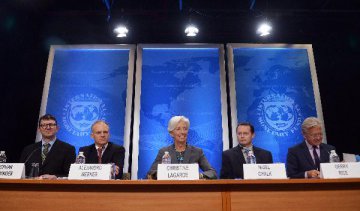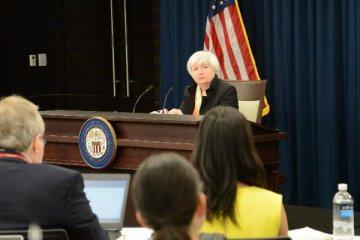
More governmental policies could be expected to increase financial support for the real economy after Premier Li Keqiang's Monday visit to a major commercial bank and the financial regulator.
Banks must improve the way they serve the real economy, especially under-invested startups in new industries, while regulators should enhance supervision to adapt to the changing market, Li said after an inspection tour of China Construction Bank and the People's Bank of China (PBOC), the central bank.
Li reflected on the difficulties small firms and the private sector face when trying to secure capital. Agriculture, private investment and the new economy -- such as the Internet, logistics, energy saving, environmental protection and smart manufacturing -- also deserve more financial support, he added.
The premier's remarks chime with the latest resolution from China's policymakers to address the lingering money shortage for the real economy, an entrenched problem that has become more pressing under the ongoing economic slowdown.
The PBOC has increased money supply, and it cut interest rates repeatedly last year to reduce corporate financing costs, with trillions of yuan pumped into the economy. In May, banks gave the green light to 937.4 billion yuan (around 145 billion U.S. dollars) in yuan-denominated loans to the real economy, up from 851 billion yuan a year ago.
Despite the efforts, Chinese companies, private and small in particular, are still struggling to raise capital. While large companies can turn to commercial banks, there is a lack of medium- and small-sized financial institutions to satisfy the growing financial demand from small firms, PBOC deputy governor Zhang Tao said in a forum early this month.
Addressing this imbalance will be a priority of the next stage of financial reform, Zhang said. The premier said the government will support private banks and consumer finance companies, promote equity financing and regional equity markets, encourage bond issuance, and raise the ratio of direct financing.
China will also work to reduce the leverage ratio of non-financial companies, intensify financial supervision and prevent systemic or regional financial risks, Li said. "To de-leverage and control risks, lenders should halt credit extension for 'zombie companies,' which will also facilitate resource allocation and support the real economy," said Dong Ximiao, an economist with Hengfeng Bank.























Latest comments